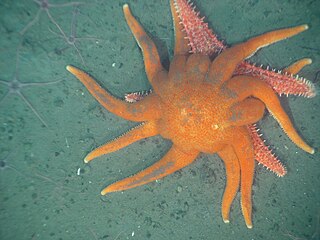
The Valvatida are an order of starfish in the class Asteroidea, which contains 695 species in 172 genera in 17 families.

The Asterinidae are a large family of sea stars in the order Valvatida.

The Astropectinidae are a family of sea stars in the order Paxillosida. Usually, these starfish live on the seabed and immerse themselves in soft sediment such as sand and mud.

Coscinasterias is a genus of sea stars of the family Asteriidae.
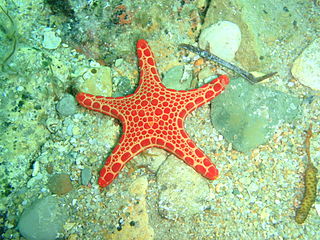
Goniasteridae constitute the largest family of sea stars, included in the order Valvatida. They are mostly deep-dwelling species, but the family also include several colorful shallow tropical species.
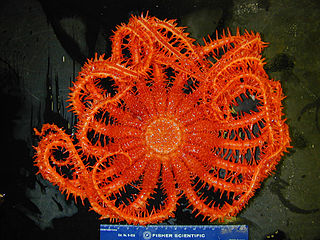
The Brisingids are deep-sea-dwelling starfish in the order Brisingida.
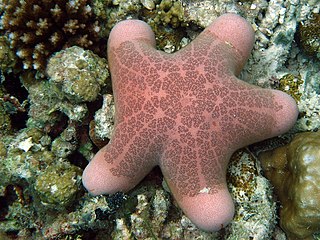
The Oreasteridae are a family of sea stars in the class Asteroidea.
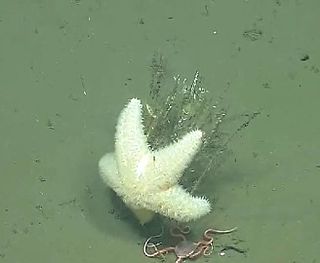
Poraniopsis is a genus of starfish in the family Poraniidae in the order Valvatida. Poraniopsis echinaster is the type species.
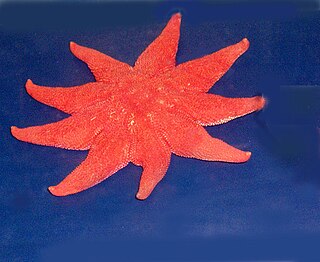
Solaster is a genus of sea stars in the family Solasteridae.

Hippasteria is one of 70 genera of sea stars in the diverse family Goniasteridae.

The Freyellidae are a family of deep-sea-dwelling starfish. It is one of two families in the order Brisingida. The majority of species in this family are found in Antarctic waters and near Australia. Other species have been found near New Zealand and the United States.

The Zoroasteridae are one of three families of Asteroidea in the order Forcipulatida. It contains seven living genera and one extinct genus.
Paranepanthia is a genus of starfish of the family Asterinidae. Members of the genus have five rays and are found in the waters around Australia, Indonesia and Antarctic New Zealand.
Trophodiscus is a genus of starfish in the family Astropectinidae. There are only two species, both found in fairly deep waters in the Sea of Okhotsk. Trophodiscus almus is also found in the Sea of Japan and around the Japanese island of Hokkaido. These starfish are very unusual in that the young are brooded on the upper surface of the female.

Myxasteridae is a family of deep-sea velatid sea stars containing nine species in three genera.

Evoplosoma is a genus of deep-sea sea star in the family Goniasteridae.
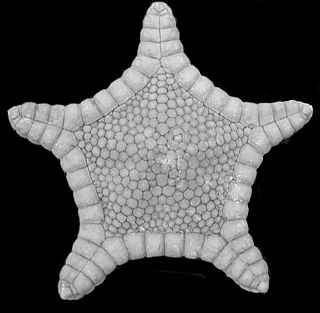
Astroceramus is a genus of abyssal sea stars in the family Goniasteridae.

Asterodiscididae is a family of starfish. Members of the family have five short tapering arms and a wide disc. The family was first described by the Australian zoologist F.W.E. Rowe in 1977.
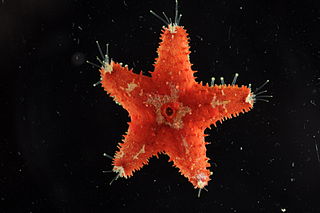
Euretaster insignis, commonly known as the striking sea star, is a species of starfish in the family Pterasteridae found in the central west Pacific Ocean. It is one of only three species in the order Velatida to be found in shallow water in the tropics. The young are brooded in a cavity underneath a "supradorsal" membrane.

Sphaeriodiscus is a genus of echinoderms belonging to the family Goniasteridae.



















